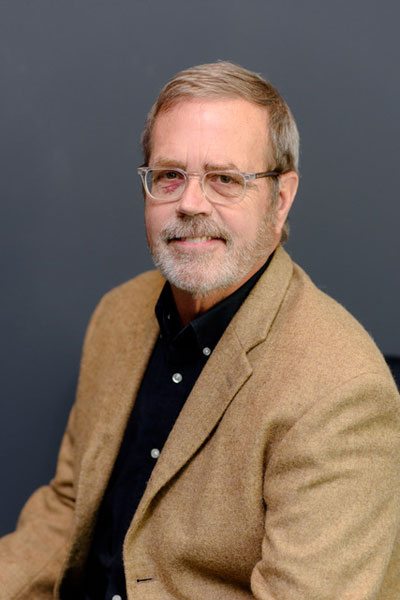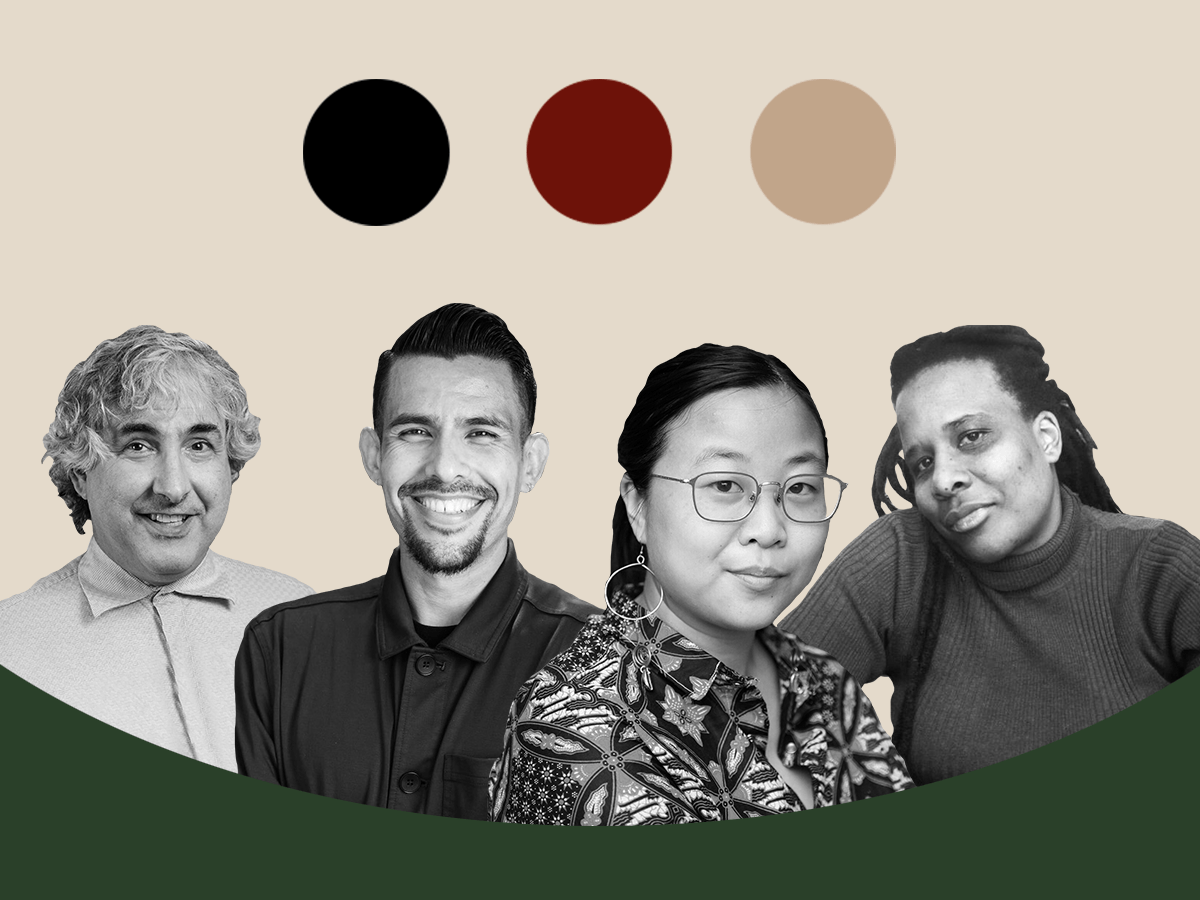
PICO, the national community organizing network, began as the Pacific Institute for Community Organizations. In 2004, it changed its name to People Improving Communities through Organizing to reflect its national reach. Today, PICO and its affiliates raise $40–50 million a year, which supports the work of 44 affiliated federations working in 150 cities and towns in 19 states plus the District of Columbia. Affiliates organize around a host of issues including police reform, disrupting the school-to-prison pipeline, eliminating food deserts, raising the minimum wage, as well as campaigns centered on job creation, affordable housing, combating racism, and immigrant rights.
Scott Reed joined PICO in 1977, but Reed began to take steps along the path to becoming a community organizer while still in high school. “I am a product of the 1960s, when this country was undergoing a lot of social convulsions,” Reed recalls. “My awakening happened in 1968. I was politically active in high school. I was following Thomas Merton and Robert Kennedy. That year, Kennedy was killed, Merton died, Dr. Martin Luther King, Jr. was killed, the Democratic convention happened in Chicago, and I was living in Chicago.”
After high school, Reed went to St. Olaf, a Lutheran college in Northfield, Minnesota. “As part of an urban studies program,” Reed recalls, “I spent nine months on the west side of Chicago. I was exposed to organizing while I was in college. After I finished and traveled a bit, I came back into community organizing in 1973.” Early on, Reed was mentored by Tom Gaudette. “He was one of four or five people that Saul Alinsky trained,” Reed notes. “He was my boss for nine months on the west side and he consulted with me in Minnesota.”
The founder of PICO was a Jesuit priest named John Bowman. “John created a pathway for me to join what became PICO in 1977,” Reed recalls. According to Reed, community organizing at PICO has gone through four phases. The first phase “centered mostly on issue-specific work. In the earliest days of my work, you’d spend a lot of time listening to people. What they care about, ticked off about, what could be done, and what should be done in the communities. Levels of crime, bad schools, lack of parks and recreation.”
But, as the work continued, Reed and his colleagues noticed “that while issues are important, if you stopped and listened to what they were saying, they were much more value-centric. In other words, they cared about their brothers and sisters, not necessarily because they alone benefitted. What we began to understand is this urge to be a public person reflects something more profound than being pissed off with what was happening in the neighborhood.” So, PICO began to become more faith-based and value-based in the mid-1980s.
The third phase, roughly corresponding to the 1990s and 2000s, was mainly about the growth of organizational infrastructure, first at the state level and then at the national level.
Now, in the 2010s, a fourth phase of what Reed calls “race-conscious organizing” has emerged. Reed explains, “For much of the field of community organizing, there was a lot more race neutrality. We’ve understood for the better part of the last decade that that is a false narrative. We have become much more thoughtful of moving race and power into our organizing efforts.”
Community Organizing and Movements
“At the center of organizing,” notes Reed, “is the commitment to both help equip people to negotiate their interests in the public square as well as develop their capacity to imagine and shape their future in a different sort of way than they are currently experiencing.
“The art of democracy,” Reed reflects, “is a precious art and it is rapidly declining in our country. People’s sense of themselves as the authors of their own liberation is attacked daily by all of the forces of society that try to turn us into consumers.”
Reed notes that the rise of social movements in the current decade has shifted the focus of community organizing—and not just by encouraging more race-conscious work.
“All of us have been profoundly affected by Black Lives Matter, the immigrant rights movement, certainly the #MeToo movement,” Reed explains. “We are fighting the criminalization of people of color—working to reduce gun violence and mass incarceration in our communities. That work is relationally connected to Black Lives Matter. Because of some of our faith commitments and connections, we had a lot of folks in Ferguson that began to connect us to police brutality.”
The rise of social movements has also fostered greater humility among community organizers. “We have been much more inclined over the last decade to recognize that organizing has a contribution, but we are not the only ones,” Reed says. “What we can do well is develop leadership capacity. We are thoughtful about training and formation work and connecting around issues. We do the power analysis and work to understand why things are happening the way they are happening. We do thoughtful strategic analysis. You don’t want to do that in isolation.”
Community Organization and Community Economic Development
Reed says that links between community organizing and community economic development are still rudimentary in the US but are much more common internationally. PICO itself, while focused mainly in the US, does some work internationally as well.
“How we got there is a story in and of itself,” Reed notes. “Essentially, people who had experienced genocide in Rwanda were in the US looking for long-term civic building strategies. They spent some time organizing with us and wanting to bring what we did into Rwanda. There is a similar story in Haiti and El Salvador. In Rwanda and Haiti, they have developed their own local cooperatives, building roof tiles; it is part of a broader organizing strategy.”
The question being asked, Reed notes, is, “How do we knit the fabric of our community? How do we take that which we can control and use it to move us further toward independence and long-term sustainability?”
Reflecting on the international examples, Reed notes that in the US, “We have a lot to learn. There is a lot to learn out of economic development that comes out of a different model than the West. I don’t think we have figured out how to do that well.”
Reed adds, “I think it is a big piece of our future, that we become more collective, that people become able to control their own wealth creation at a time in which the big consolidation of wealth and resources is happening. That is going to drive the next 50 years. What is going to be important is for that to not be somehow detached from political muscle, the sense of a deeper commitment to one another. The very pieces of agency that organizing helps nurture and foment are going to be critical to developing elements of an effective economic system.”
Sign up for our free newsletters
Subscribe to NPQ's newsletters to have our top stories delivered directly to your inbox.
By signing up, you agree to our privacy policy and terms of use, and to receive messages from NPQ and our partners.
Theory of Change
“Ultimately, what the field of organizing believes is that people matter,” Reed notes. “And people need to be architects of solutions for their problems. They have to have agency: both skills and knowledge, and autonomy. The ability to not just understand how it is done, but to do it.”
Reed elaborates that, “The big gamble of democracy has been that inequality of resources can be balanced by equality of voice. The theory of change tries to suggest that people matter. The ability to leverage the assets and resources that people bring to the table to create political will and muscle is an important part of democracy and balancing what is a global concentration of wealth and resource. And it is an uphill battle. The concentration, and the acceleration of that concentration, is really terrible. We seem to be at a moment in this country that people are becoming more and more aware that the social contract that we have taken for granted is being rewritten without our permission. This is a pregnant moment for potential alternative opportunities.”
Merger Pressures
Community organizing has seen a number of mergers. For example, People’s Action Institute is a combination of what were four separate organizations just two years ago—namely, US Action, National People’s Action, the Alliance for a Just Society, and Campaign for America’s Future.
Reed thinks merger pressures are likely to persist. “The attacks against democratic organizing efforts are going to continue. The ability to stand against those threats is going to require resources and drive people into stronger cooperative agreements with one another,” Reed says, even though he concedes there’s a risk that mergers will reduce the level of local control. “It is going to require a creative leadership that makes sure people’s voices still matter. But given the limited resources that are available, there will need to be stronger forms of cooperation, so we are not spending on the same things.”
Where Are Community Groups and Movements Headed?
“We need to find ways in which we cohere, a deep appetite for people to contribute to a new story about the politics in our country,” Reed observes. “That—creating some coherence to that—is going to be a challenge, whether that is in movement spaces or organizing spaces.”
“It’s not enough to be against something,” Reed cautions. “In the long term, we have to be helping people imagine something they are fighting for and not just against.”
Reed argues that what is needed is a “new story that is about belonging, inclusion and abundance and opportunity. Not a story about scarcity that is focused on a false hierarchy of values. There is a whole lot of appetite for that story to be told.”
Reed adds that part of that new story is a new definition of “what it means to have faith.”
It is not found in buildings, it is found on the streets. In people in action to one another. We are called to become something bigger than ourselves. Our fundamental belief in one another to shape something different. Why I am so optimistic is that I think that is the mood of our country.
Reed gives an example from an organizing campaign that he once worked on in San Diego. “One of the leaders I met with,” Reed explains, “was [Dorothy,] a woman who had two teenage daughters. Incredibly committed leaders. They were helping build political power with the mayor. The campaign was seeking a mayoral commitment to address drug distribution and the violence associated with it as a health epidemic.”
Reed recalls, “We were going to have at least 1,200 people at the event. Dorothy was going to be a pinner. She was going to pin [the mayor] down on a specific ask. In this case, we were asking for a state-of-emergency declaration in a public meeting.
“Dorothy introduced me to her two daughters. I asked her what they thought about coming to the meeting. She said they didn’t want to come, but I said that I went to their soccer games and so on. I told them that they needed to be there to me.”
Afterwards, though, her daughters were glad they went. “Do you know how long it’s been since I’ve been a hero in my daughters’ eyes?” Dorothy related.
There is, Reed surmises, in Dorothy’s story, a “lesson in unleashing the power of people.” Reed says that it was “true in the civil rights movement, in the founding of our country, and today.”
“We have to be able to unleash the imagination,” Reed adds. “We need to dismantle those systems that strip [people] of that sense of imagination, agency, contribution, and purpose.”
“What we are up against today,” Reed concludes, is “to keep that [power stripping] from happening. Because equality and equity come at a price. Power is being used to hold on to what it is. As our world becomes smaller, it becomes a more acute fight.”











